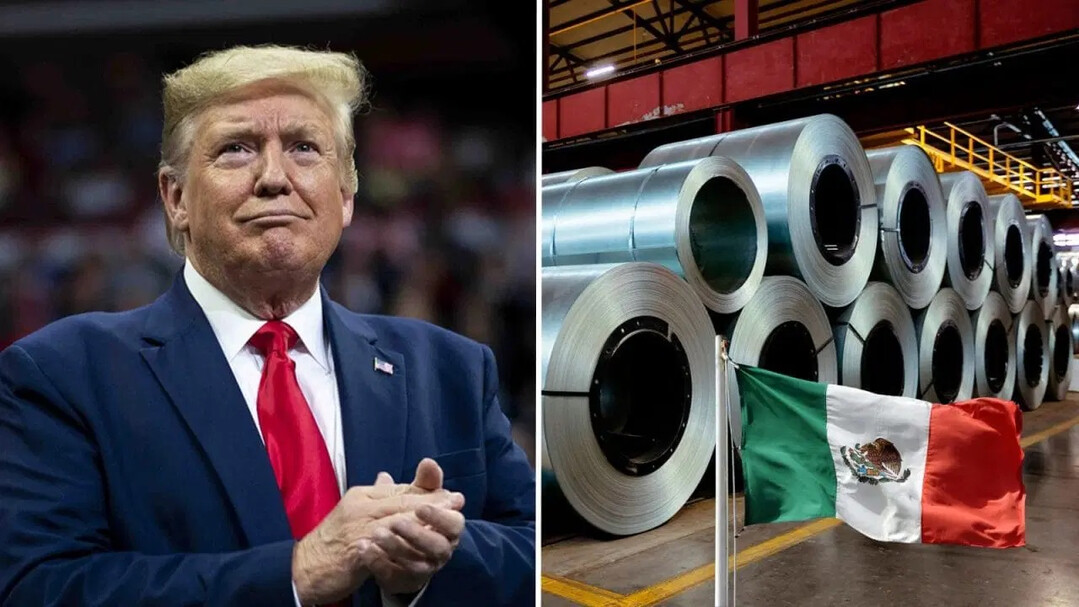
Washington D.C. – Former U.S. President Donald Trump's decision to impose sweeping 25% tariffs on all steel and aluminum imports has sent ripples through North American trade relations, particularly impacting Mexico. The tariffs, which took effect on March 12th, have ignited concerns about potential economic repercussions and retaliatory measures.
Mexico's Vulnerable Position
Mexico, a major trading partner with the U.S., finds itself in a precarious position. The country is a significant importer of U.S. steel, creating a trade imbalance that favors the United States. According to the National Chamber of the Iron and Steel Industry (Canacero), this imbalance amounted to 2.4 million tons and over $4 billion in 2024.
Potential Impacts on Mexican Industries
The tariffs threaten to inflate costs for crucial Mexican industries, including:
Automotive and Auto Parts: This sector, a cornerstone of U.S.-Mexico trade, faces increased production expenses, potentially undermining its competitiveness.
Construction: Higher steel and aluminum prices could stall infrastructure projects and drive up housing costs.
Appliances and Manufacturing: These sectors will also grapple with elevated input costs, impacting their bottom lines.
The Risk of Retaliatory Tariffs
Experts caution against Mexico responding with reciprocal tariffs on U.S. steel. Ildefonso Guajardo, former Mexican Secretary of Economy and a key negotiator of the USMCA trade agreement, warns that this could backfire. "If Mexico responds with similar steel tariffs, Mexico would be affected because the country imports more steel than it exports to the United States," he explained. Such a move could harm Mexican industries reliant on U.S. steel.
Alternative Responses
Instead of reciprocal tariffs, Guajardo suggests targeted measures that would minimize harm to the Mexican economy. Edmundo Enciso Villarreal, president of the Nearshoring and Foreign Trade commissions of the Employers' Confederation of the Mexican Republic (Coparmex) in Mexico City, echoed this sentiment, emphasizing the need for strategic responses that protect key industries.
U.S. Impact and Consumer Costs
While Mexico faces significant challenges, the tariffs could also have adverse effects on the U.S. economy. American industries and consumers may bear the brunt of increased costs, as the tariffs raise prices for goods utilizing steel and aluminum.
Economists like Justin Weidner of Deutsche Bank point out that if american businesses cannot find cheaper alternatives, then the american consumer will end up paying the difference.
Also, supply chain expert Patrick Penfield of Syracuse University, pointed out the difficulty of just changing providers. Because of contracts, and the way current supply chains are set up.
Political and Economic Implications
The tariffs have added another layer of complexity to the U.S.-Mexico trade relationship. Claudia Sheinbaum the current president of Mexico, has stated that Mexico will wait until April 2nd, to make any decisions regarding reciprocal teriffs. The situation highlights the delicate balance between protecting domestic industries and maintaining mutually beneficial trade ties.
Key Considerations:
The trade imbalance in steel favors the U.S., making reciprocal tariffs potentially detrimental to Mexico.
Key Mexican industries, including automotive and construction, are vulnerable to increased costs.
U.S. consumers may face higher prices for goods containing steel and aluminum.
The effects of this will take time to fully understand, and depend on how supply chains, and businesses react to the tarrifs.
The coming weeks will be crucial in determining the long-term impact of these tariffs on both economies.
[Copyright (c) Global Economic Times. All Rights Reserved.]





























